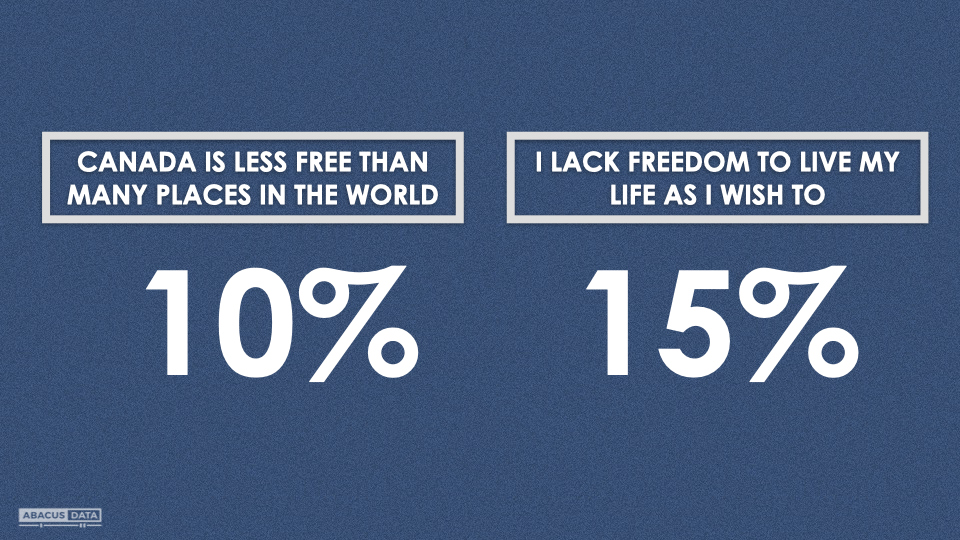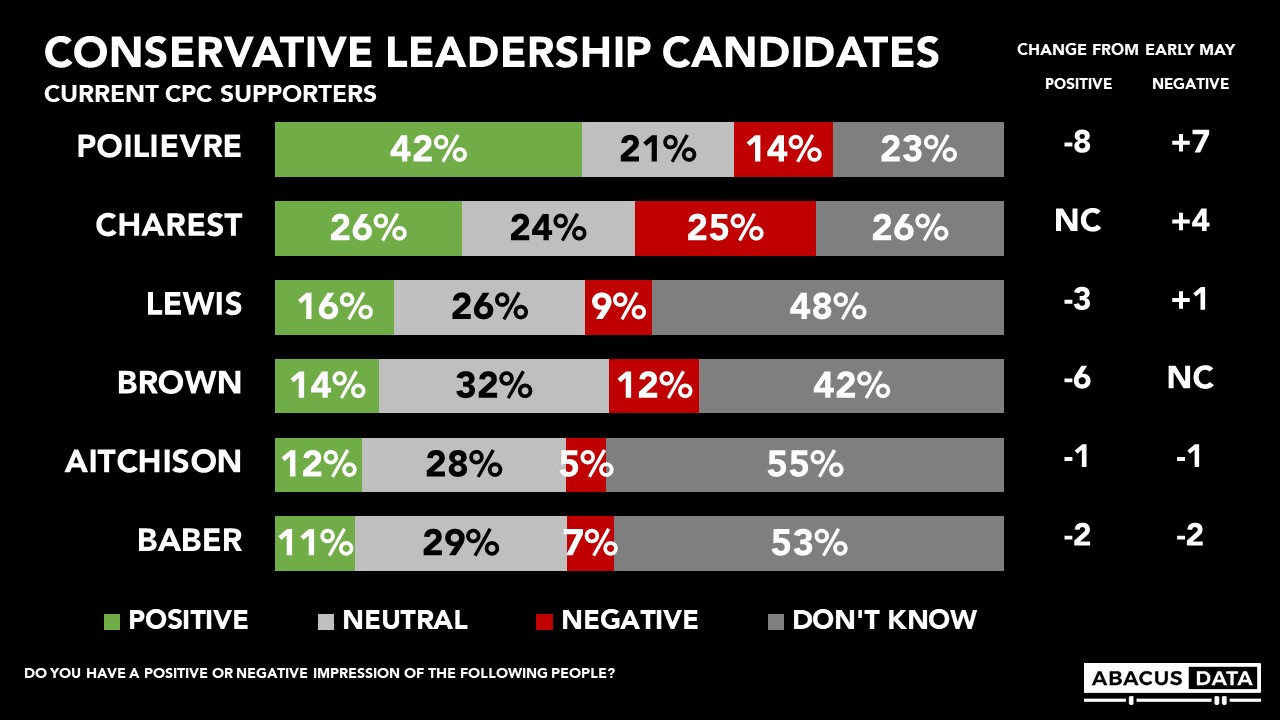Canada’s healthcare system? Most say it’s working as well as can be expected
August 10, 2021
In new public opinion research commissioned by the Canadian Life and Health Insurance Association, 3200 adult Canadians were interviewed by Abacus Data, between July 20th and 24th, 2021.
Results show that Canadians tend to see our health care system as functioning in line with their expectations, with relatively better satisfaction regarding virtual care, access to GPs and timely tests, drug costs and access to quality medicines.
Areas where people see more room for improvement, include access to specialists, timely ER and surgical care, the cost of mental health services and long-term care.
Nearly 3/4ths of Canadians support an approach to pharmacare that provides coverage for those who do not have it without impacting the coverage of those who do. This view is held consistently across geographic regions and also with Canadians who identify with the three major national parties.
OVERALL SYSTEM PERFORMANCE
We Asked, “setting aside the impact of the pandemic and thinking about the last few years, how has the overall system of health care been working for Canada as a whole very well, as well as can be expected, or not working very well.” The majority (73%) say the system has been working very well (17%) or as well as can be expected (56%) while 27% say the system has not been working very well.
When asked the same question in terms of how well the system has been doing at meeting their own needs, results showed slightly higher levels of satisfaction.
At different ages, people have different health care needs and experiences. However, there are fairly modest differences in satisfaction by demographic group, when it comes to assessments of the health care system. Roughly three quarters or more of every age and income group say the system is doing at least as well as can be expected at meeting their needs.
Worth noting is that voters who say health care will be the deciding factor in terms of how they vote in the next election are a little more satisfied with the system than average.
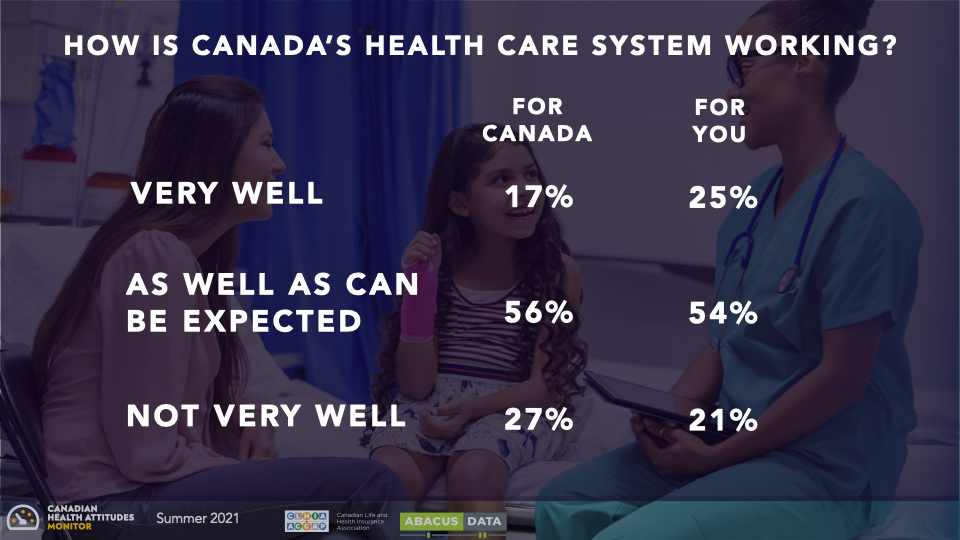
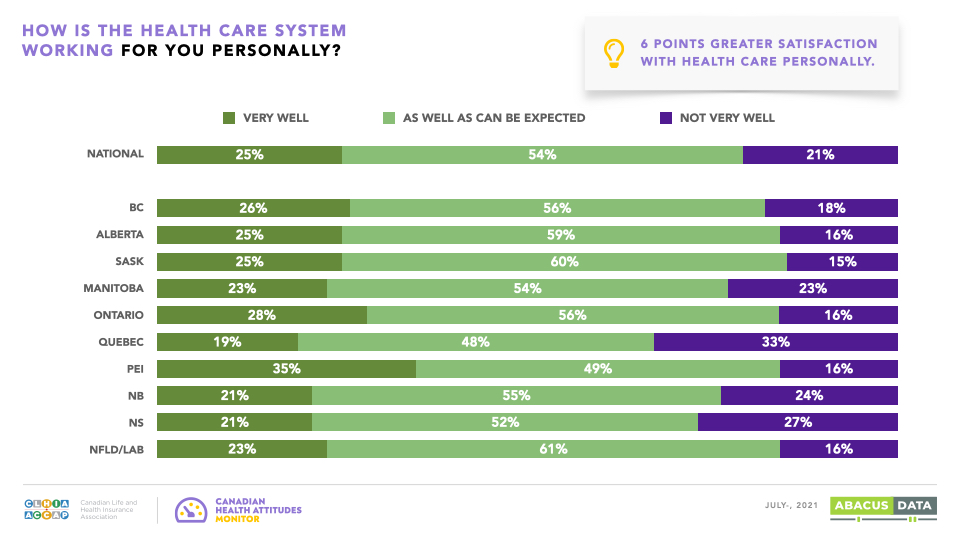

SPECIFIC PERFORMANCE ASSESSMENTS
Canadians see areas where they think the system is performing better and others where they are more likely to feel it is falling short of their needs. Best marks are for virtual care, access to and cost of prescription medicines, access to general practitioners and timely tests.
The areas where 40% or more feel the system is falling short of their needs include access to surgical care, timely ER care, affordable long-term care, and access to specialists. There is a consensus around the need to improve the cost of long-term care, and access to specialists.
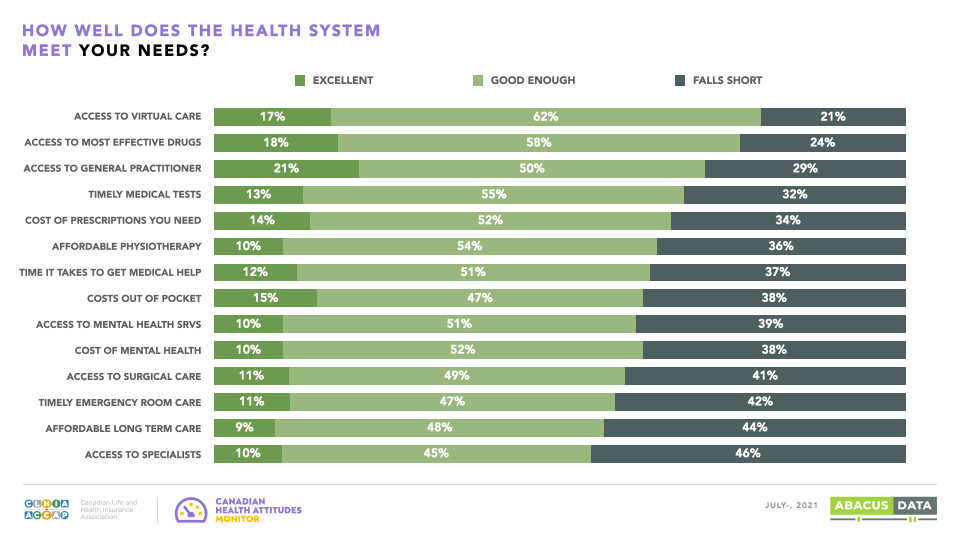
PHARMACARE
One topical question is the nature of a federal pharmacare initiative. This survey’s results show a similar finding to those we have seen before. While Canadians like the idea of a pharmacare initiative, they prefer an approach that supports the needs of those who do not have drug insurance coverage today, while ensuring that those who do have a benefits plan do not find their plan put at risk.
More than 70% in every part of the country favour a targeted “fill the gaps” style approach over a single government plan covering everyone.
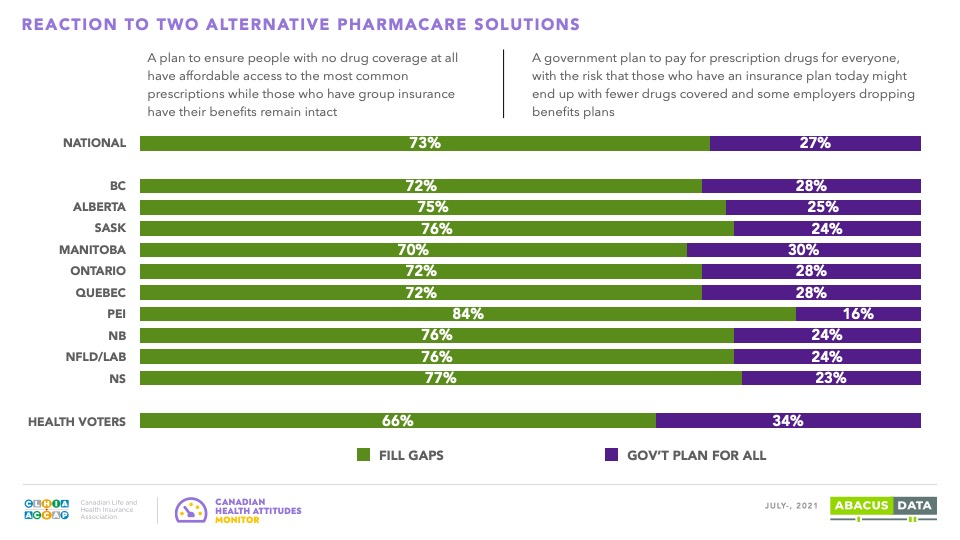
Support for a fill the gaps approach is based on the fact that more than 90% think some, a fair number, or many businesses would see a government plan for drug coverage as an “opportunity to drop their group workplace benefit plans as a way to reduce business expenses.”
UPSHOT
Most people see Canada’s health care system functioning in line with their expectations. Best marks are for virtual care, access to and cost of prescription medicines, access to general practitioners and timely tests.
The areas where more feel the system is falling short include access to surgical care, timely ER care, affordable long-term care, and the cost of mental health supports. Almost 3 in 4 Canadians prefer a targeted approach to pharmacare over a plan where the government provides coverage for everyone. According to Bruce Anderson, Chairman of Abacus Data “In a number of studies we’ve conducted, it’s clear that the many Canadians who have group benefits plans value the coverage they have and want a pharmacare policy that helps others but does not put their coverage in jeopardy.”
METHODOLOGY
The survey was conducted online with 3,200 Canadians aged 18 and over from July 20 to 24, 2021. A random sample of panellists was invited to complete the survey from a set of partner panels based on the Lucid exchange platform. These partners are double opt-in survey panels, blended to manage out potential skews in the data from a single source.
The margin of error for a comparable probability-based random sample of the same size is +/- 1.73%, 19 times out of 20. The data were weighted according to census data to ensure that the sample matched Canada’s population according to age, gender, educational attainment, and region. Totals may not add up to 100 due to rounding.
The survey was paid for by the Canadian Life and Health Insurance Association
[sc name=”signup”]
ABOUT ABACUS DATA
We are the only research and strategy firm that helps organizations respond to the disruptive risks and opportunities in a world where demographics and technology are changing more quickly than ever.
Find out more about what we are doing to help clients respond to the COVID-19 pandemic.
We are an innovative, fast-growing public opinion and marketing research consultancy. We use the latest technology, sound science, and deep experience to generate top-flight research-based advice to our clients. We offer global research capacity with a strong focus on customer service, attention to detail and exceptional value.
We were one of the most accurate pollsters conducting research during the 2019 Canadian Election.
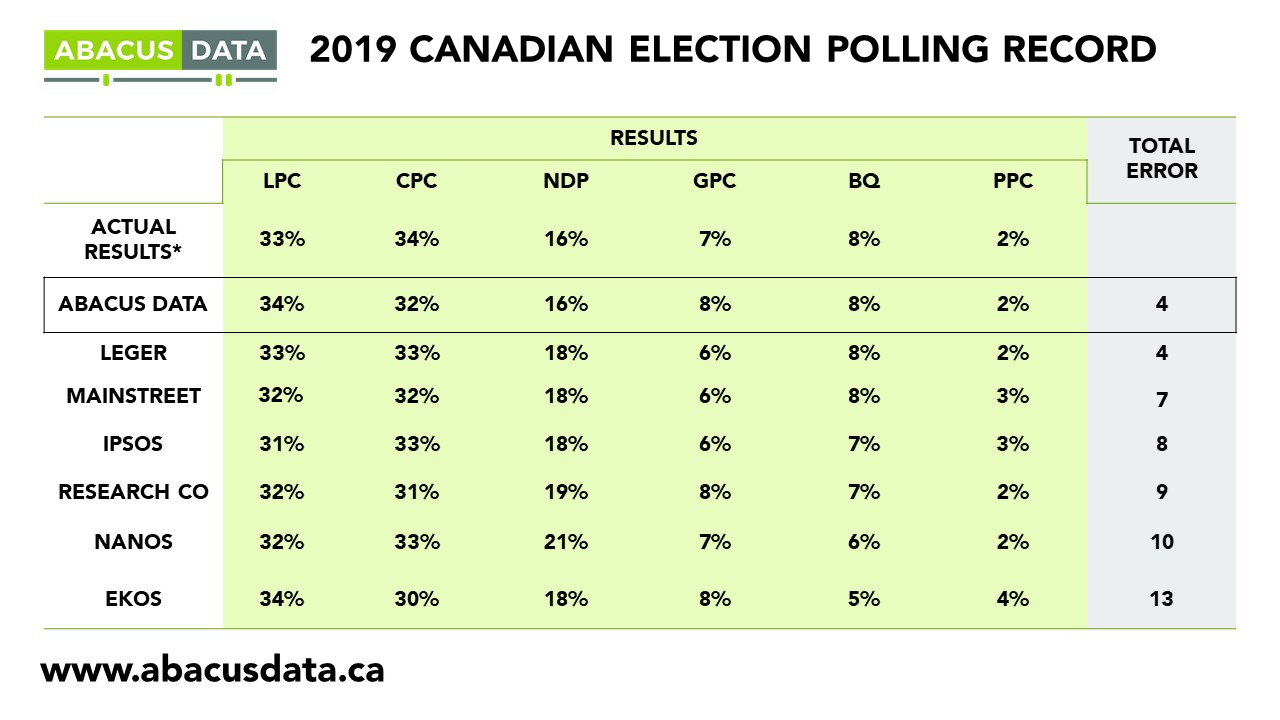
Contact us with any questions.
Find out more about how we can help your organization by downloading our corporate profile and service offering.
[sc name=”signup”]

